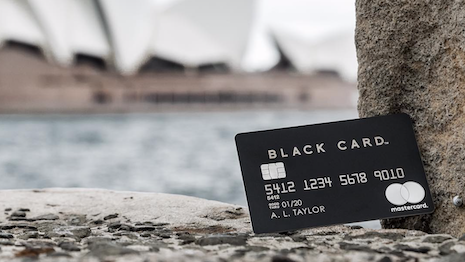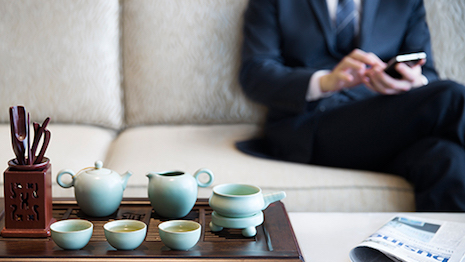To prepare for the travelers of the future, luxury hospitality brands need to streamline their services and offerings from beginning to end.
During a webinar presented by Phocuswire and sponsored by Amadeus Hospitality, industry experts discussed how technology is influencing travelers’ new expectations. Incorporating more streamlined technology will help larger hotel groups offer improved personal service.
“Standardized experiences of the past are out, and personalized visits are in,” said Ahmed Yousseff, executive vice president of marketing and corporate development at Amadeus Hospitality.
The webinar discussion, led by Phocuswire editor in chief Kevin May, was based on research conducted by Amadeus Hospitality.
Evolving travelers
As millennial and Generation Z consumers mature, they are looking to spend more on experiences, including travel. However, their digitally-savvy nature shapes their demands for optimized and customized hospitality experiences.
Among the emerging expectations from travelers are easily accessible price comparisons, guest reviews, booking efficiency, tailored deals and services and positive corporate values.

Luxury Card assists customers in booking high-end travel experiences. Image credit: Luxury Card
The desire for optimized and immersive experiences ranges from the discovery stage through the end of a trip, posing another challenge for hospitality brands.
“End-point solutions are not effectively talking to each other,” Mr. Yousseff said. “How do you effectively distribute content?”
While improving technology, including Web sites and mobile applications, should be a priority for brands, it is unlikely digital tools will displace in-person hospitality.
Two-thirds of guests prefer interacting with hotel staff over using self-service technology, according to Amadeus.
Instead, technology and customer data will help staff better meet guest needs. These personal touches must be relevant to be effective.
For instance, Mr. Yousseff described an instance in which he returned to a boutique hotel and found that the minibar was only stocked with the beverages he drank during his first stay.
As the number of travelers swells – Amadeus predicts there will be 4 billion international air travelers in 2019 – so will interest in alternative accommodations.
Findings from Amadeus show that the majority of travelers are interested in customizing a room, including a respective 75 and 67 percent of travelers from Asia and the Americas.

Many travelers are interested in customizing a room. Image credit: The Pierre
Travel context will also impact what rooms guests are looking to book.
When traveling with young children, parents are most likely to splurge on an upgraded room layout, such as trading in a standard room for a suite, according to research from Top Flight Family. Suites top the list of preferred accommodation type with 49 percent opting for this room type (see story).
Luxury applications
Loyalty programs will also need to evolve to meet travelers’ omnichannel requirements.
“Loyalty will go beyond price, points and location,” Mr. Yousseff said.
Rewards programs are crucial for hospitality groups since they encourage customer retention and emphasize experiential travel, a growing trend among affluents.
Bonvoy is Marriott International’s newly revamped loyalty program that covers 30 hotel brands, including what was once Marriott Rewards, the Ritz-Carlton Rewards and Starwood Preferred Guest. Members will also be able to purchase or redeem points for unique experiences on a new digital platform, Marriott Bonvoy Moments (see story).
Luxury hotel groups are often at the forefront of experimenting with mobile technology to better engage with guests.
Marriott International is also harnessing voice technology to provide a more interactive guest experience at its properties. Guests at select properties in Marriott Hotels, Westin Hotels & Resorts, St. Regis Hotels & Resorts, Aloft Hotels and Autograph Collection Hotels will be able to use Alexa's voice technology to access services and amenities (see story).
Artificial intelligence also helps hospitality brands gather guest feedback, which can be used to further improve customer service or marketing efforts.
Hilton’s Waldorf Astoria Hotels & Resorts used consumer insight data to inspire its first digital-led campaign. Instead of focusing on how technology helps guests, Waldorf Astoria's video campaign emphasized face-to-face interactions – a conscious choice made based on a survey nearly 1,500 luxury consumers over the age of 25 (see story).
“Artificial intelligence will empower us to provide guests with better experiences,” Mr. Yousseff said.
{"ct":"2o2fCOjaFw5P1ON4ppekQmXHBdqsBtY4BJ+jj\/5dWumpFGicRYPD8F\/T6vmXNzPcBtn7gS0mP5fZbS63zFrZtYTcqk61UdAOqUeMf6FO7BwDR7gO2G9zkCX0qUCMYO02tM3auiYLFC2VS84nP4QbzxcL3VRIG6qAkwWTsLDBoC0oPhnfAKNu\/9ZVHBUCc7JwFb7\/ypMtQoxSPLTieW5dWaOI91pSQ8+Lq9V2JmoKT+Lttmrqqq\/\/PuYybSS8\/zkNRXLK9tP31+3FjG95PgL5h8PqC3KAOht3m0gC3rdTQtWel0TR2xElNehWVIGZvenM5UMkZGfvz0m9PsA2VTqPb8vYDO9AYAZh285FZHkGWShqoSZzc36vNbb5hCVsUiXUZCB\/DzTB7WZwcoh60BtVGrnE6J6vMmerNzeAPiKwYkUmurUGGJGr6UiL0LnWzY5Dkpp4626R6wOLREznwsvr24hkdNygcgG9BQPUB3BLMTKmaqip\/qFVMvy5dvTgmvayQehc5Dq\/\/RNbPjGZr7lkYDfz7SVVR5nKLry3h1nF5+SwCUNbtJsfVThLBymxWmvY+zXRP3NTlA47VHC0VrMXOiuVNz+4YNXv7Z1me8b1iRz3lXJm6QlTditT4XTCXDyvViqf02IvS8hmTUHK4+XbqBaRSTnLljomarxYIqSI8SaHFZS7Mg91dIxWCj\/ZKeBQxyeeE27feDOTfHk1HEqsytVtgMC+2tmZCOdB9JQ\/OVfQ\/OwFXKoKoBeX2a\/bV0hn04WEocQlCqUf9C81kc3dTML9SPR9FNvm\/ls0C0gQtGo6D+IxJbEZnoxNauVBcI0UQ+JO0M+VLxxhgKxa1giIgJnlWTP3Ecc9Ks8nqEMx\/jNKTNh8\/zm3Cz0Jd7uG66L+sUIVsnKDnbspyhSB2jJ\/TgNsOsm8tbBP6YhZo3f1TOFQ0c1UZ2N\/MRyDrYBMjQ6BVCE1oNwVtHPklJE6pnjXVLeJPvzzZMDBWWz6CgJXxTj3H9HXmFeyP97b15BDhU6vA283tz139PNMkWLUAHiS6CwNLzE4XMvg7HpbE6Egs3FR5byVH8vMfytghBvPgSGfsD7buAufXiNQkXDnq1gHpmkKEFLj3peUM276x32p6wjaDPLHO\/8f8FuYX+p74bWxiiDmxGwh2GrTFMiAa6nob9Z3Ix2tT5PR0pgBf0j6Hndyyd13tGqDN87Z1ITscWCQPB6G\/vF4foQDMbv0WJz56cQHvSFIQFZ4QlXEMYZtyiGp231GxvxPqkKKZupKv2JBZBir9fmNuYo0qxh13NL2i9jcKqiIqPPoXTz24cMd9T3SZSSRzpUon8wDaceIK8dms+3okXZNNvr1yF8NqTqSnM1zeAIITe2jR0nu9t++TIxLnaXwZPcNt+emJf\/2EzrxDd\/oMRv931ysgI+M+ijIcB0Q6u5PplA1e\/8Qdx0Sv5R59yTLM7wPK70xXTQyJwDxqrA4jROxiSWPuhhTSdyjlUI2ouVRb24lqdsElC+fos0zn1Y+Mr00XccbqlPa7c86h9f3sRAgLMplYWBzs\/2UWu6S2bzbq7imnGKMjKsuwqRNAoc1QftFe0rKuws2sKyi2NteTaEDTavMNBMYhE7w4xbToKehGvMjtU2dH6CRyQzkUVpRRKeoG\/mF0ART1ahCxUmYTen1XptNhY+AHL6hTHPPqNVbzPRn\/SN1coXK5vNAiRNgSOBcDJHcjfV+js2noIfLTDDUuuioMFiHdMSCogrJmKwG7ak1R3yNqBj+Gh2RHlVC7a9zvoNCCmSarQ3X4AdbByxCvY0NyXxQySXIFOpFXi2XRV7CJQoGwqMuqIRMfqpS4e0GVimVXDyWVRDz7vtlYG7kgnpVIvr0STOrn8mskFEme0Mlw20MwmgieOZVqiQOyUaRyrMfW\/92MkOeW+T2nXTL8Ge8faN1F3ROV1Y+zk2mm1wcT6iaBfI2vP1aAsRh3VRdzWCfLon9rcGl31Nf2f73woi60CQE5MgMMCNTb\/hXnFhEExJnZdtredlFc9\/hpcVvqqh5KFOAO9QGA7O825KvvWB\/BC+ZkWTkVjYKvEt47i2KTA5UropAtxunNsDMNCKyrQmo8NbWkzoolhx7n4sdis+h2DC1q5JWANMoViYljGts6P8HJM\/VFoPZVdazt7LwJFqYNh1YSoQPGcQ4\/kJtPxna44Ma+O7axzX5ks0Sy7\/ztryVn71DNTvQkWyS5TyD6JiEeB3+SDMcEG6asbpbw+O3DRH1bd8QjYOOu6KdI4cWvRsSn22XKARVT9EAKOV5Ypwrx0KLbAVFNLcnCCIufRdTJ350lWtsdA5O069l6xiHn0htwnKteY5LAy\/NRkoWVF4X49qCJHuzqRV1RzgkbXJmjkCyyeQhvHmW4+8s4fCreExffsTmO9PjuqQoN5WhDFO+lNgLnXDdF6gwbhB7rj+F85cWu54iWIQOjywsa10EVBk6Mm1\/WFF9fnGDQtqYSFFz4XcnPdGRK8KUF9YMWqkT3ameqh2S27hJ2H1cU9tu3x9sVgqqLkSVOpI7938CwYR2n4l2Fe5Ocss3VIXSupJ9Hl4jO3zixWTjeKcOffvlluF0EjBtHCy+EAdb5HIEkCdGSbhlGnXS6eVO3YKvmX6RwE3sn\/SVhFAyM2W8YJjX9QizsUJKLKzESbJtgyxgb7wm04FxQO7zdznmzcOWQ6XvIuDQlU8D4PA5Yu6UQdcqEJ51ubj1yxT4j4FrNq92h7O90J9frt25IFZYtWFLwxkGCnb2wmKllaLiPg+phlKhTCFGUo2mXP5Zck3LzwdSErfwVwop9IckUEf4jmyjlhQAgG2nHatZN9vzwgQ8b+hv\/3rucd1CR4GjO3wnkdP7DWI01KJTAsyEjQeHnHcMJFt\/CMgAuNvEINzRnDr9xz83YPI3+A967e6ysESbIRZxBdlu2N78FNLk3uucjMxgzwDfzraZbxTRnSkXKB7yZIma8x+yrN28VLdNRlSNl5OrsLDQfIwu680MH99+tfUT462a7\/lG9PRZ+b3Qhxlxz7YjVyo5gY8qwatHSw3907EaDFBcLKkUNa0o8UDsWpV7wRjMTiJ2JW6YxgI9Qow83LyeecHsfCjbBVUQvJZ\/5Ubks\/io36DmALkT+mZYWYJvMUZBmlUOVli+A+7s+ccWwBEHRcxDpJBJS4lhkC1EDImOf+F5uB8i0A0Bf9GSj1ckHU8jm5jjmYocHygjcQPXcSIYYjsnUdHZClCypO7l0NdR\/3mNzxaLbTyJcRo2F1NYyzL\/57vGfGrmd37iuLPG\/voGulCoVLLWlFr8Uka0\/FtEa97wFHDoGFB9jCqHaamKtuqFTJVGOIu3qM4f4RUD5MS1vg9vjcq345z\/iXetIAE4DIQOx0ln4If3fkgWtIh+E5KnG1IwAWhX9pbpBwUD81gFJCLzRbCoeI+55xUqyeBtDJK2tO2K0WQWGH6YXQ+9Au5yuVSWyX3c3\/+zfeFDSJXCuVcLX2GFMrQ5\/R1RzjkowH0MTC2GeR6hQ58qxEvgqdroMibLyBpyEmAyt5AXhcYWNOkCKepMKgknJTJo\/HS0npLkuF401cN6PVcisYJpi7eofzBso5wGgKHHhrBTsvq81Ws4i+YR0goWq0gzZvPHlOVM68Ezu6LnjneEUoiPaWqYBunaUpZ30MFKR\/ONJ9CPxhY8JTsQudnYJg3wUIRshHuKHs1r2mdg8WeY9MzTNWnYAgUS98T3EUBWSsXhFZcNplWC4Qf7SWUBzTXiI8vfhcDAVGtBcIHH0VliXLmWbvH\/HDzkCHEqRVBTKYMw2JL0MJsyBgMNGtRB6S7FMTD9G3VJBd3t8\/FSLfZX6e0VA2F+mQ9PiMtx\/Nz2sgulSQzDJtCFLonthSrmGRJYCoFftIPwLn+G\/ibjx6LmZMziDBHXARIJtJI20\/Qrg+TEYztMv9lShRsvlSSZYsZ8nZAXLKM9Oi8e\/CA142DiBYV4+hhsspYhJWaVk0iCLX3clFTk3XaLpuwc2p3nohl2BdRZGql+PaBsyY6+IbNnB6pVjbv5ZRqw4JpBTCIWw+AsGKwo\/bYb\/7952ukvL32SeEIsNZXlgw75inTpH6SDlbi8n6496X0rnq588dUHsx6ttkdr0UCQcejvPIF\/Cxfwvry9t2Sz25ACRzl91lX7dwv2QWZjB8FxY9Tl3xqVP2zFeyAw4rhbmZ8zabCT\/d5tF\/Z2Mm4Xhd3o700dcrLTsMlKu01sNuUVmhlEPp5x8Rb9ZqVcPDU3tn3z55byIw8nSr5p6hVpgCYCTeu8ZQ7KAisKsygYgb2iRXhu8mAbqXP+XJfie7u\/pConvJZsX5Fv8E6dool\/o\/ZWWwO8pmpeHmm37STs91\/QMCZfedpjDOO+LFtET4SCridQyMVlfykfSA6NA6POMbDBJF9CVRf746HC7WDPkFoKogxAWElDtHB2ISCnQBlfosE0CjMbP\/qN2VFHdf3WMRTkOK0EVefdmyd4\/o3Cq8rp1JrG\/2S5lBZdB9qYcACxUcfe7txp1dFvaaPUwI88eBj8HAFTbrkZasAWMCCMAM4AIio9JpTZl05wVXX\/yhUsaykWr76f\/2UyN3TQepsjMMTTQCFJjpv\/y68k3IRncjWkGuH8SY5VV5pizF8ls79WcDeTuMC7xMZe3mZ+h6hprd10nvW+O2arrw7Z0KAGUCXYX9PG6G5pwdsI7mlB53bZ2UGxgVplZ6\/+\/7BiRf2CpGTmrK8M9dV1cfIZChW6oXJtx7JOVGZ1aGnrrBZBzfA6oEPX7qJcVBcPJZc9KAS9z9j2eh4IDIXYHmQUum0sLHktzuLqECdaX3EXmZiBTjzwElbVm5nL9lpvps4Km3lDSFsQd8U2DsOqDtiSrhGs1I9bQpDraLq\/afgs2nql01LRA1\/HxKkRecqxbwZlJDfTFmP636ukI\/CBP5JfB2AzntDrqcZk82+UDuM12HLjvMbQedHPAhP3F+z6ZoYXMIPGxnuCdVtu73s4G9CLpKyZpA5WQmba6XH2CW+9iIiyt93Ek9c\/2JnKIeuZZnPvYZagFqXgOda+unPw3hdUeItrC1BYpdyr8IYrTHhfOZI+zBXYVhPgEZmV28MmTmydAs3cODKTlNePUSMzMccc+7YXU6\/Len9BewKOXE5Ha3zI1WAGKCZkL+GK\/T4ha0AIO6OygF21OUOW8wf8X1Q4qdaN9O+4EE1b4nvMce8kmSqSpryAZQik8dx6DRXMVjb0tZT1q6PX7Ns+03x9h1QofhJLgyJ04QAcp5d1vV4fxosJJSNyJZdi8HWVLs+plyo6TO6zlZdz6Cguj5d+1v0PeBpDrXWmpj+ffZKEntg0Xgc18S8ahngGVi52X\/n+lSYwTx50jbmsl0TvtGGhIFIK\/hm+ODi0y++K8aqVrSHENQj\/WrDiRoOIufLyTlrZmMiFs1xyEZSB8eD8tkjwFOV6Rq+uAqZXNM0jLyU6EJe5Gj9dRdA+OmFTYPttmtUTE4xPwLMtQPkM0yIfwouCXbk9F7KLQbpxD1QUNwO4g6xeoY2vUSjsfWF8VZpherufpfkFtcRA7Ln78Z0mTJl03nDG87WvueaJCpk9PF7i8taxi0rZMRcrrqCEcxbP5O\/QszcrYi1IoT7dOZNt7oT\/Q0NmSyb\/hbR92Xp9RXOMYNNSsLOWN9W0KeNNAdI9n28+Sdc1AzdrXv5qeWXnUguTsLoVf3FuHzgEnrb0VsImGu08B4FIA9wkduFOlRKjrC5N67gogEPkXOy7nvs5MlI6eoMPjVr++VBKmXWlKl33kLAMI7WqYUeH+SUx4nt0D9mFMfuGS8xAITDXjXLrvsYh02qc5u4jBOyr4S2O\/YSwAleZ64pSBRcGYP5dfdzqEK1Zp0KB1BvdvB+gYb+NxcIlVlHCuTr5k8xE8fC3xWOOCS9NWA7Uj7ED8vhxoxeGJ6hfAzrrsXsd+HDoGBhs0fzrUVt47+NDO5DVmx9GJ5oHID+hIM52SrLHZnwAfD3C4ICm394fKu865WYXpvdhPzbM2acohPcwTu5Y2KTngdpnmssQQobZVdxBuk4vJreXuWw5gLwneaJcT00g9Ssz0Ub9cqkovA89ymye3xliFPCgjp13HYpU3jtBxFAIIXieUuwLmI7HFuo0zdJKRSqlSDPQrSGEhCHO99M67WT4I83Gh2FpK+crtCkNFHwbHKeTGi7N7hpjMLQ\/zX2tI7SFjQ4sDUQ+rtAVRcFyJ+D2y+RDgX5uKIgTeUeMS8zKzdRknfFc2J0YDHUUK1WUxfzkS9K8Lifx8asGRdOgsvmhkmT5bT8d0zNlVvTBdkHU9cz8TtBHEvLWNyIE2PqYmfr4gh\/lz2brCryIK68gutoC5zxc5c4y1Ls9F8D39AtMY3U5o2Z8PW7GdeeDKUNpSeMbwZjj3yWeIUIZUoUBeoX4Z\/S1BbVCcJi7uN8kwlF\/dBtsQ2xe3c+KhR38ZBkmPKVvg8Aj6tZKHgq7STFxiE\/0lyvrMAGjmqbJpLnkvHXa\/JjPM3tMn9nV8auJGk0mSc0ZYYEfHJbzQbcfVUkjuIUCBo2JOBGjc6a+Dm27XPK\/Ck2+RbynH+XPN2IAlUywxloosqtI1qIjupdKl8LfrKGWVMBvoQ8x1xgL6EUyZSaShtcmJSaerkOyQjsQtXVOrA0hjd+\/fdIPLgSPuiAof4gNKtMQXJ6GyKeat\/gkI8gURpb6UxLE214gzu7cnTakLX\/6uzfjeKs15Di6x4HGwHdbZhIBmtOCHXRJGsG3dAM9FHf+o3WQLFx\/ywoO0H4z9TZfgKL5tYnP1Hs3oAcMI8fW2n\/yJjOO2XvXr+QCcQEEEzbMJOg++Op2yR1PTIa67gJAa2KQ3ylUToYfOvZBVug5b1WcW8yzVTUvaQo2cLWuS62u2b4PRJvy4M+1\/2ElHUGgtsXeJ8e9luFizky0AgAtIfMeB6Y2DriizK7Fu1GMP\/knhd8d9UH2a\/G8CB45fJ9FUOQPYJgwvVimfjf+v0yIwsyzWvLn02OKRlqAb0w37AeWUpVLPMs5kCpEoW6EwOq\/MViKhsez4RADVuD0R0dUtPaVphQpAZRFnSbcAscpKW\/HnMCXzmJW3X9rGsMD+MO5JcKLzVEWjZWBTtKhiJ5VZPffpPpERx\/uirP6jEIrGYzB950x2QDu9WuJihbmxv13pxy2vQc1dlvh0NTN7vzaPDtOczDOdPyU0\/\/Rvs07+XwG4YRyVI09jH2C1HW59qKprxCFkdRTAD4CghISPMZAICg4m4kRwMDFWcwFyv4EFnJcehanVhY7brVYgPhEG5GoXG1eFU8uI5FxZNYkpi\/dj\/ZszxTL2uXfFMMF3rapgssBA0tzIMvrpmJR349amqt\/ac9SLY7ZUJeU0uETONqFRFV9uwvouOJyMuN0DJHijsn6p91dqhPg9EWugS1rS11IygZgWjqvRQFL0x5hOQfB7F1Q4hkrqTirbkGzm1tvztHVF3TBL6xppNW5AXYl38prH5ENF\/0Hv1CbpSlOWGOy2dMuQTsqiosqPGod4eg0Q37qy7WiUtDucakqT19ciY3ZRzT8VponHJBxgxqEHr1mAbux2LWT\/UpCqHSoDTPApXEiaJEbOitlR28RfqB5j5x96Anmks4fnIwX\/vrSyf1Yy1AverWbMSTi+AK8nZIvVhpg8YQ+Cx3G7KN4wqgD+Hc\/sa7In7iGSPZGZ7B74SCEIe2GMMYAGuTz\/A3hCUYthGipJHLHrIvYYupnAem4NN+8nOuUSu4FRIKaUZFhardAGNNV2hbgPDRTwGyLr8Pm2w8uEWZKRBNI904pPCxeEtwBsHAsvNUEB+usduqiLxgOxssLv2TCBLpcdCaFl4G0ZIXis++UgZvT4BuSm4\/w1jNcjfi7ewXU8q2r3MqjZAiNnA+M\/RvMkg2xw9eEGAriHPtKqa5NljW4FieFPeJAmEWuRxMl4BXYvIVGLZuKrmXfor7hOEpeqLFEzXddqDdb0e9aSGsrUUlNkJ4\/a18w3sJ5KEzuuJrtNuamssL05uWFZEHGVmEYmKapowMqYvAJeHYe2281c26axDpOqgoDnSTTvuC9hMcIMvIF23PzM3747m6I1H0BW86aXsXmicJCJzESNyTvlSQXmNjouGI9HUyRglTvdM87m7lT9nMUBAtXFbFr8qVqlLAS+m0wnmsskqWyELQ4Z5AHFv9NTBg6C6ZRQF7EERpw4j0iqx7q9U3IQkfc0SZeH1HhUxUPyKLM5xK6jfXQxbPuQQzeknciPRdK9MSiExJH\/uj1h54HxNVk5MB6FS9Fx1Koi9UOHeiVNN4606oeZlhHGIvkYbHRda3U4iQ\/a+d48FNP94D2iNcbAz3AnIRfFKsueQzRfRts\/zsgZLQMnxLCV0AsgAclbAxy+beZG+zQdjZXukDY0eYSdDvG7wl5FeSseXuUQdsU2O+8R\/QWo8u9UXwL7kfUK+r5wu\/ystR7ZwelZOhebwvNBv+OP25K2CM7lAjxrTu971H139ZXvxoxVyx9Ozl9Wig0pp1nW3sS0iuy70qRT3bkT4Lo887KL6vbxnrLX96pDjAn8CLExXDyf6QqifggSSvy7s3LMhurLKVUz\/zJb6Uj6YBI3XJRhSqETHRGnzbg7Vn\/W2VxFeWLRoybzXg2Q\/HntfMwXXw0TXws1\/tv2Vio+1TTEhoEyiLTJKn8YOzHKmbuYkq4MGNuQ+qET3hxsovF","iv":"7740f3634eab63443f6051c402eda3f6","s":"aec0047f2c910966"}

 Travelers are expecting more seamless hospitality experiences. Image credit: Marriott
Travelers are expecting more seamless hospitality experiences. Image credit: Marriott